Are You Afraid Of Medal Rounds?
Long-time club member Carly Frost discusses why she feels the attitude to playing in medals has changed dramatically among women to the most dreaded format

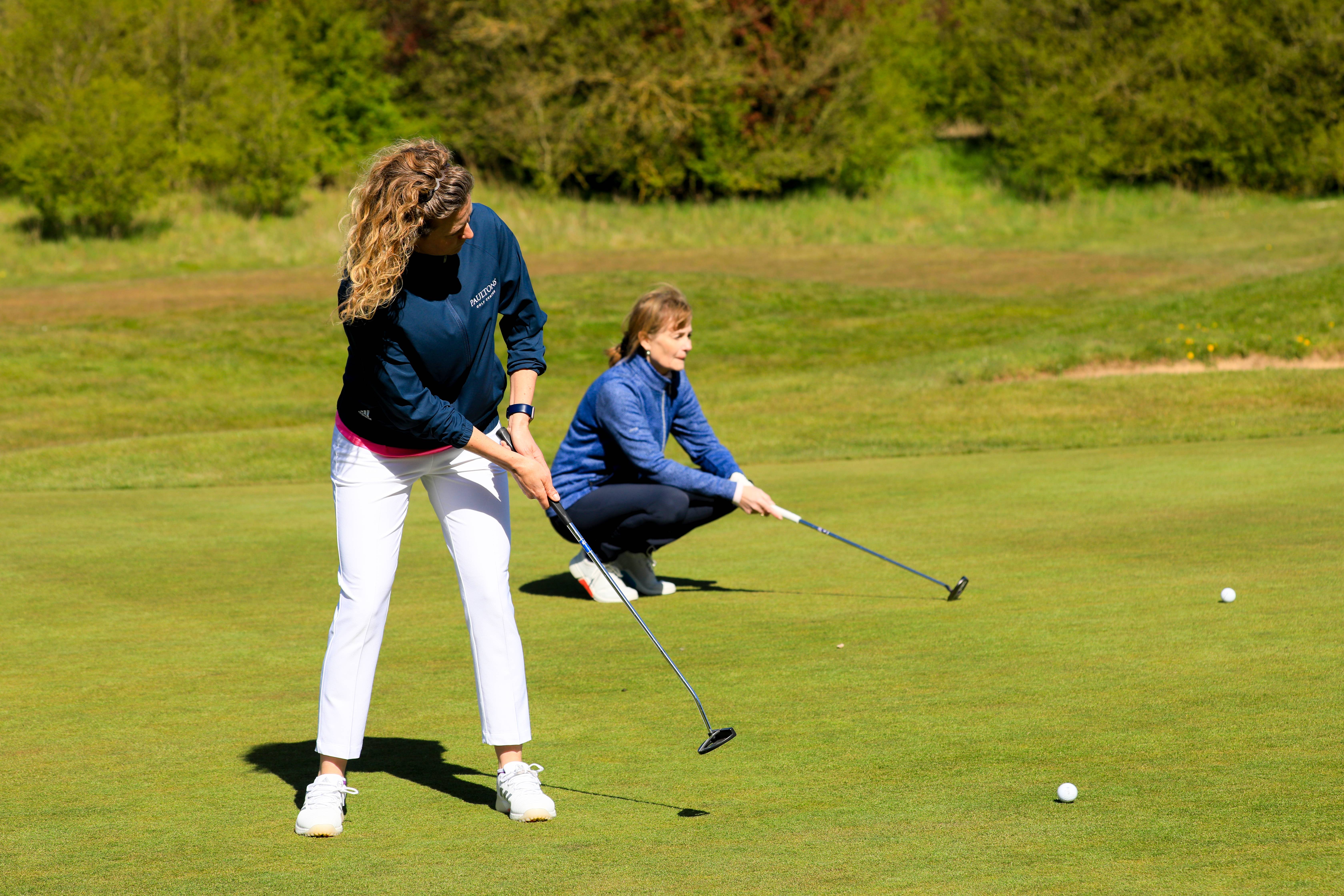
Subscribe to the Golf Monthly newsletter to stay up to date with all the latest tour news, equipment news, reviews, head-to-heads and buyer’s guides from our team of experienced experts.
You are now subscribed
Your newsletter sign-up was successful
Want to add more newsletters?

Delivered daily
Daily Newsletter
Sign up for all the latest tour news, gear reviews, head-to-heads and buyer’s guides plus features, tips from our top 50 coaches and rules advice from our expert team.

Once a week
Kick Point
Sign up to our free Kick Point newsletter, filled with the latest gear reviews and expert advice as well as the best deals we spot each week.

Once a week
Women's Golf Edit
Sign up to our free newsletter, filled with news, features, tips and best buys surrounding the world of women’s golf. If you’re a female golfer, you won’t want to miss out!
The monthly medal. The very word is enough to fill us with fear. But why does this traditional format of golf evoke so much dread? For many women, it’s the thought of taking double digits or more on a hole, causing their handicap to go up and up. It’s the shame of having to play three off the tee or a provisional ball to complete a hole, one or two bad holes ruining an entire round. It’s the thought that racking up a big score will spoil their playing partners’ games and hold the whole field up.
This situation happened to me playing in a medal recently. A lovely lady in my group (who I won’t name and shame) hit a poor tee shot on the second hole of our round into the gorse. She played a provisional ball, but we subsequently found her first ball in an unplayable spot with nowhere to take a penalty drop (even back-on-the-line relief wasn't an option), so she was forced to take the walk of shame back to the tee.
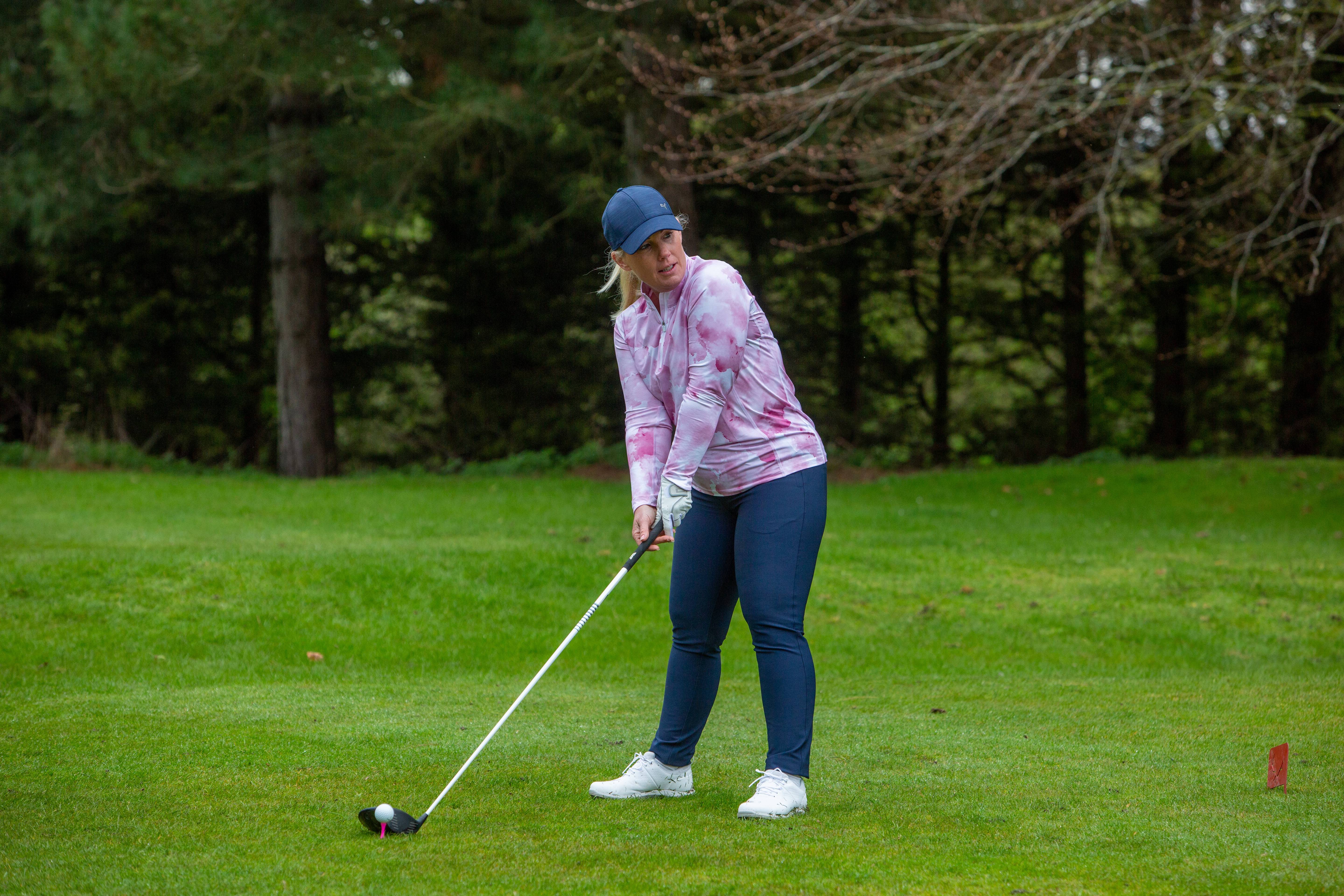
Guess what? She went and hit the ball straight back into the middle of that gorse bush! This was such a shame for her so early on in our round. She was clearly uncomfortable and conscious of the time it was taking going backwards and forwards from tee to trouble, of holding us up and the group - in fact the whole field behind and rushing.
So, I totally understand why some women, like this lady, simply say ‘no’ to playing in a medal and opt out. After all, had the lost ball occurred in a Stableford competition she could have comfortably picked up on that hole, put down a zero on the scorecard and still carried on scoring for the rest of the round.
Nonetheless, it’s always disappointing to hear of women who are perfectly capable of playing a medal choosing not to enter for fear of making a scene like the scenario above. There’s certainly a marked difference between the number of women who book to play in a Stableford or in a fun format competition versus a medal at my home club Parkstone. It’s become such a big issue that we have recently trialled a solution for women facing the predicament.
But there is the 'maximum score' rule to consider, which for many women should encourage them to have a go at playing in a medal. A maximum score is set by the golf club committee, although England Golf's recommended minimum value over par is +5. This means, for example, once you've played 5 shots over par on a hole, you can pick up.
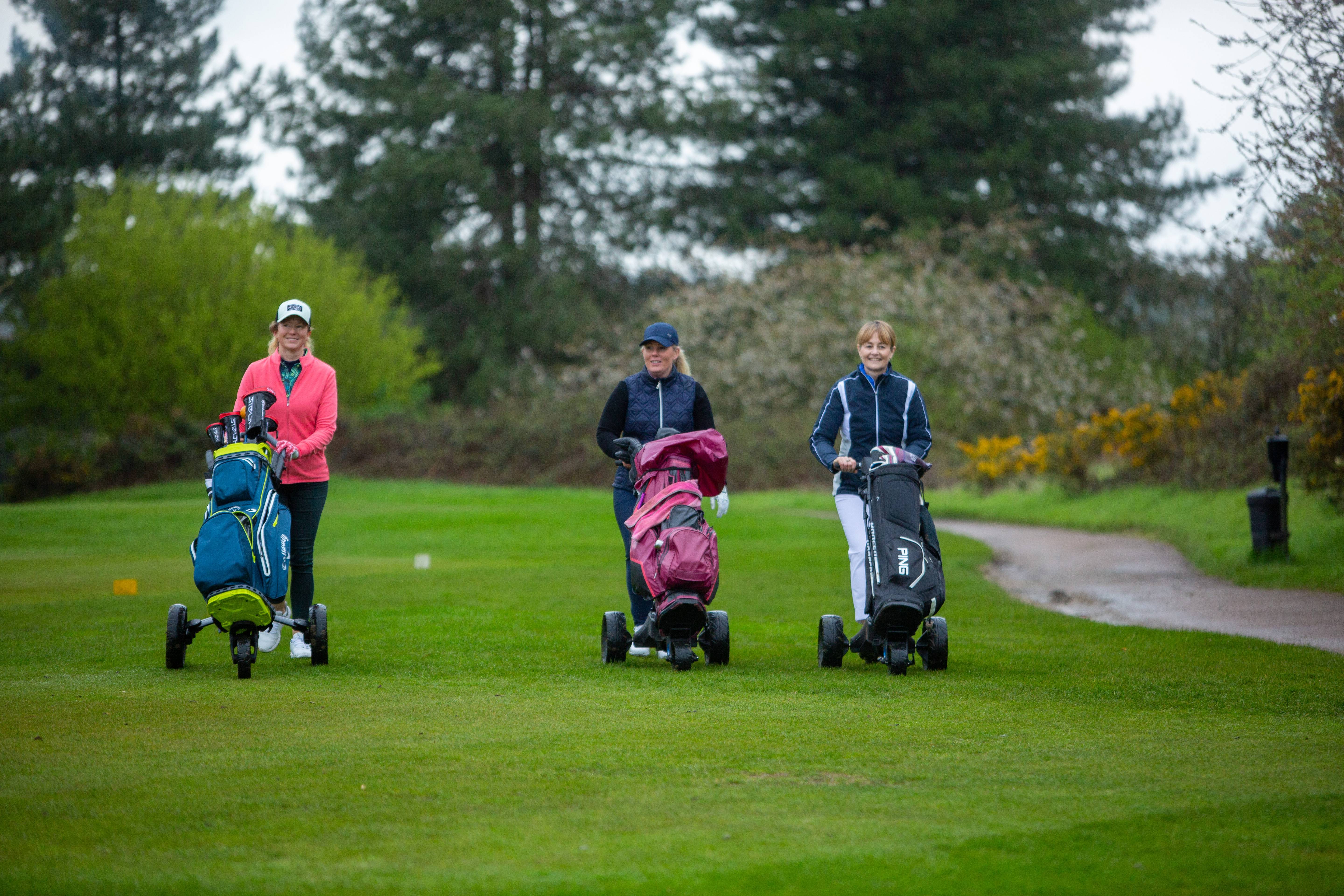
Putting a critical hat on, it would be easy to insist that the medal is a part of the great history and heritage of the game of golf and as such we should all have to play in at least three a year to keep our handicap. The purist would argue that golf originated as a game where the goal was always to just score. To simply count how many strokes it took you to get the ball in the hole and then add it up at the end. By and large, this is exactly how tournament golf is still played. So as amateurs we should embrace and appreciate that a medal is just part of our sport, it’s how the game is supposed to be played.
Subscribe to the Golf Monthly newsletter to stay up to date with all the latest tour news, equipment news, reviews, head-to-heads and buyer’s guides from our team of experienced experts.
Or should we? In this day and age should we rip up the old scorecard so to speak and take a more modern approach to the sport, to encourage the next generation to play and stay in the game by offering a great variety of competition formats to appeal to a wide player profile. I have to admit that the golf landscape is changing.
The type of women taking up golf is more diverse than ever before, which is exciting. More and more newcomers are demanding faster formats and fun ways to play. In our busy lives it’s often not possible to make time to play a medal (it’s the slowest format of golf), and many of us - particularly juniors and working women/mums - want to play and compete in a shorter time, juggling other commitments.
Perhaps a blend of the two is the ideal scenario so that there continues to be one medal a month for those wishing to play, but with a maximum score allowance for those who choose it.
I used to really look forward to going to away courses to play in an Open, but last year changed that. I entered two or three where my team played brilliantly and came nowhere near the prizes. I’m talking 10 shots or more away from a prize. Now I know that it’s the taking part that counts and not the winning, but it’s frustrating when you play your socks off and get beaten by a team of falsely handicapped women.
Since the introduction of the new World Handicap System, women’s handicaps have skyrocketed, with many gaining upwards of 10 strokes. The trouble with fun formats is that you don’t have to play well on every hole, if it’s a Betterball or Texas scramble you have multiple chances, and women who once played off a decent low handicap still have that skill in them to score really well on several holes a round. Off my single figure handicapI simply can’t compete and that sort of takes the fun out of turning up at Opens, knowing it’s pretty pointless looking at the prize table.
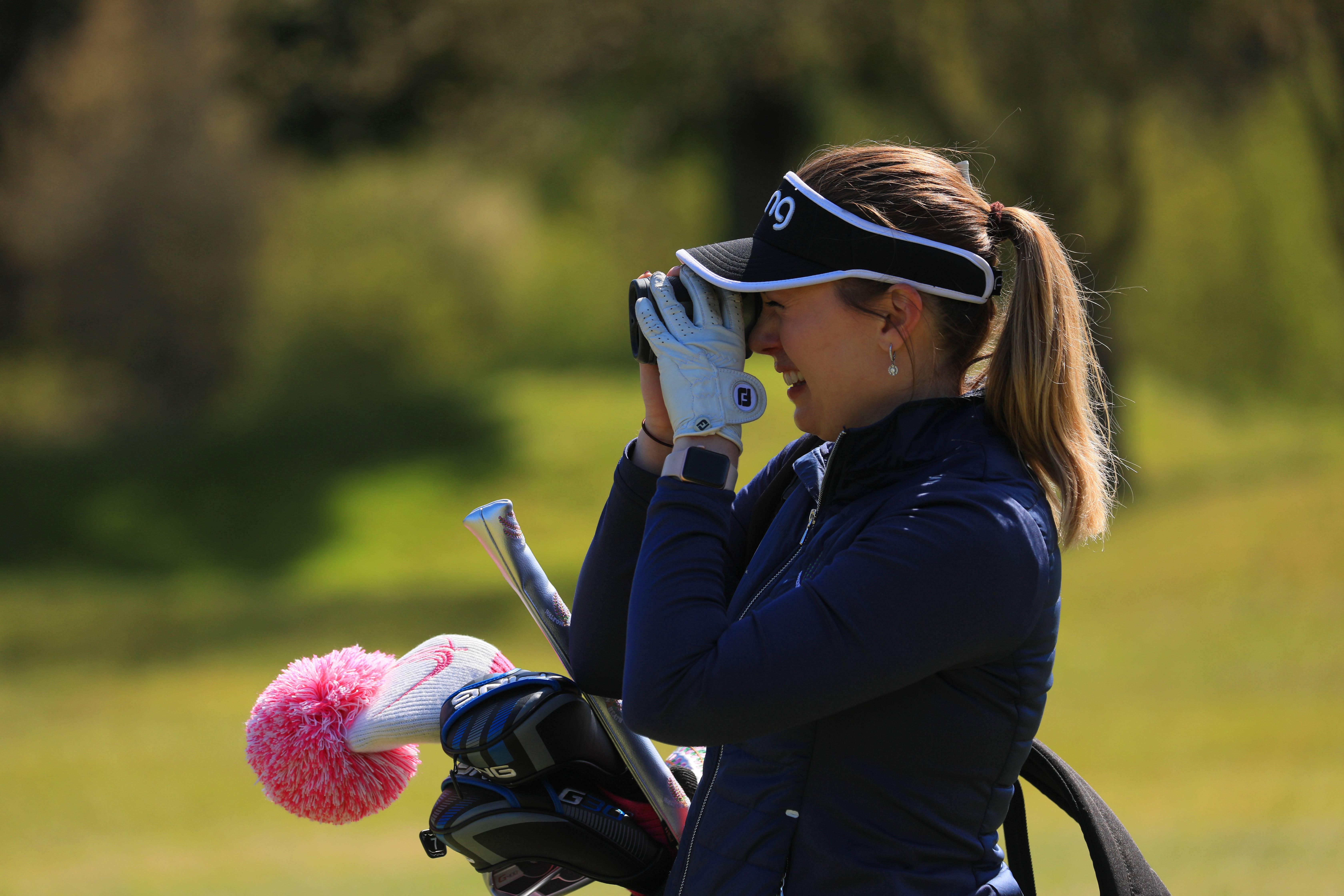
The same can be said for club competitions that are one division for a trophy. In the last one I entered I shot a respectable net 73. The winner had a 65. Even on my absolute best day I’m not going to shoot five under par - well, never say never - but it’s really unlikely. But someone playing off a 30 handicap, who used to be in the mid-twenties before the WHS changed that, can easily play 10 under their handicap on a good day. So, handicaps no longer make golf competitions a fair and level playing field.
It’s a shame because that’s what I used to love about golf. The fact that an 80-year-old off a 35 handicap could compete alongside me off 3. Fairly. It’s happened in knock-out matches where we have battled and gone to the 19th or even 20th hole. So, while I applaud clubs for offering women the opportunity to play in all sorts of formats from traditional to forward-thinking, I still think golf’s governing bodies need to reassess handicaps and make things fair again.
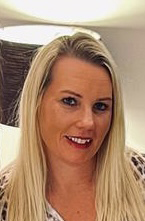
Carly Frost is one of the golf industry’s best-known female writers, having worked for golf magazines for over 20 years. As a consistent three-handicapper who plays competitive club golf at Parkstone and the Isle of Purbeck courses in Dorset every week, Carly is well-versed in what lady golfers love. Her passion for golf and skill at writing combine to give her an unbeatable insight into the ladies game.
Carly’s role at Golf Monthly is to help deliver thorough and accurate ladies equipment reviews, buying advice and comparisons to help you find exactly what you are looking for. So whether it’s the latest driver, set of irons, golf ball, pair of shoes or even an outfit, Carly will help you decide what to buy. Over the years she has been fortunate to play some of the greatest courses in the world, ranking Sea Island, Georgia, USA, among her favourite golf resorts. Carly's aptly-named son Hogan is already hitting the ball as far as mum and will undoubtedly be a name to watch out for in the future.
Carly is a keen competitor and her list of golfing achievements are vast. She is a former winner of the South West of England Ladies Intermediate Championship, a three-time winner of the European Media Masters and she once beat an entire start-sheet of men to the title of Times Corporate World Golf Champion. She has played for both the Dorset and Surrey County Ladies first teams and is known for her excellent track record at matchplay.
Carly holds the ladies course record (68) at her home club Parkstone and her lowest competition round (seven-under-par 65) was carded in the pro-am of the Irish Ladies Open at Killeen Castle, playing alongside Solheim Cup superstar Anna Nordqvist. Although her current handicap index has crept up to 3.7 since Covid she has her sights firmly set on achieving that elusive scratch handicap and hopefully playing for her country when she’s 50.
Carly’s current What's In The Bag?
Driver: Callaway Epic Max, 10.5°
Fairway wood: TaylorMade SIM2, 15°
Hybrids: Titleist TS2, 19°, 21°, 24°
Irons: Mizuno JPX900, 5-PW
Wedges: Cleveland RTX, 52°, 56° and 58°
Putter: Scotty Cameron Futura X5
Ball: 2021 Callaway Ladies SuperSoft